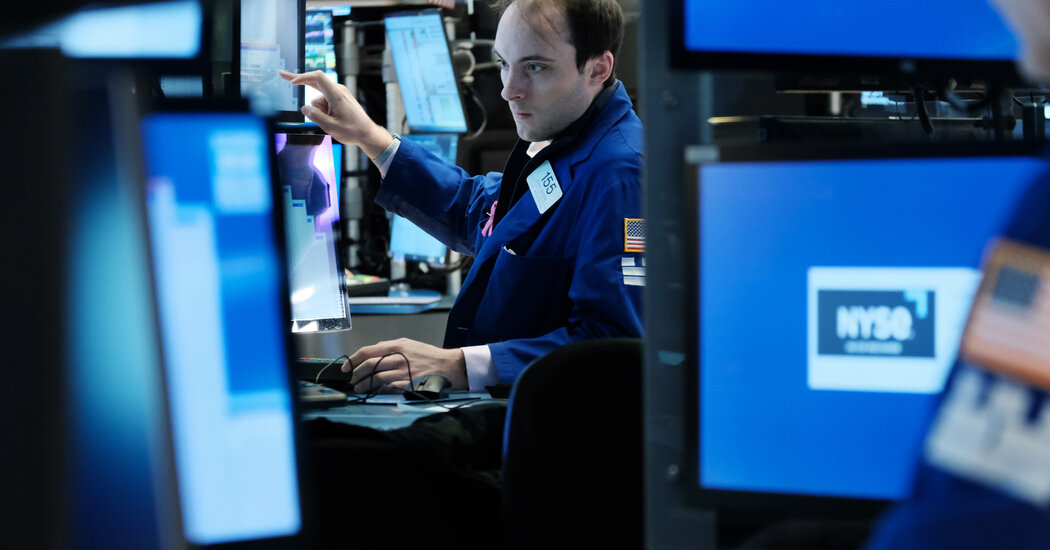A group of regional banking stocks that came under heavy pressure this week, fueling fears of a developing banking crisis, rose on Friday, at least partially allaying those concerns.
The recovery came as the market was also supported by hiring data deemed strong enough to ease recession concerns without prompting the Federal Reserve to tighten the economy further.
PacWest rose more than 80 percent after falling more than 50 percent on Thursday. Western Alliance’s share price rose 50 percent, also reversing some of the previous day’s drop.
The relief rally helped lift the broader market, with the S&P 500 up 1.9 percent on its first day of gains in May.
“We thought the banks had been unfairly penalized this past week, and even before that,” said Matt Peron, the director of research at Janus Henderson, an asset manager. “The rally makes sense because they were oversold.”
Still, the gains weren’t enough to turn around another week of bruises for the country’s medium-sized banks. The repossession and sale of First Republic to JPMorgan Chase on Monday was presented by Jamie Dimon, CEO of JPMorgan, and marked the end of the crisis that began in March with the collapse of Silicon Valley Bank.
However, Mr Dimon added that “maybe another smaller” bank will get into trouble. Soon after, another attack hit the stocks of smaller lenders like PacWest and Western Alliance, which tried to reassure investors that their deposit base was stable and that market movements had nothing to do with their financial health.
Despite Friday’s rally, PacWest remained determined to finish the week having lost nearly half of its market value. Western Alliance ended about a third lower than where it started the week. The S&P 500 ended the week down 0.8 percent.
Concerns about the fate of regional lenders were further allayed by new data on Friday showing a robust labor market, with the pace of new hires in April stronger than expected and workers still enjoying strong wage increases.
Despite the strong data for April, downward revisions to data from previous months show that the long-term trend of a slowing labor market continues, and investors still expect Fed policymakers to stop raising interest rates at their next meeting in June.
Elsewhere, oil prices rose, often reflecting better prospects for the global economy. They also rebounded after a sharp drop earlier this week.
Federal Reserve Chairman Jerome H. Powell has said it is possible to slow the economy enough to curb inflation without sending it into recession. No doubt Friday’s employment data supports that notion of a so-called soft landing.
Nevertheless, some investors remain tense even after Friday’s rally.
“The market appears vulnerable to a shock,” said Mr. Peron. “We’ll be careful until we get through a break.”
Another tailwind for the market came from Apple, which reported better-than-expected earnings for the first quarter, sending its share price nearly 5 percent higher on Friday. Due to the size of the tech giant, its moves have more effect on the S&P 500 than any company in the index.

